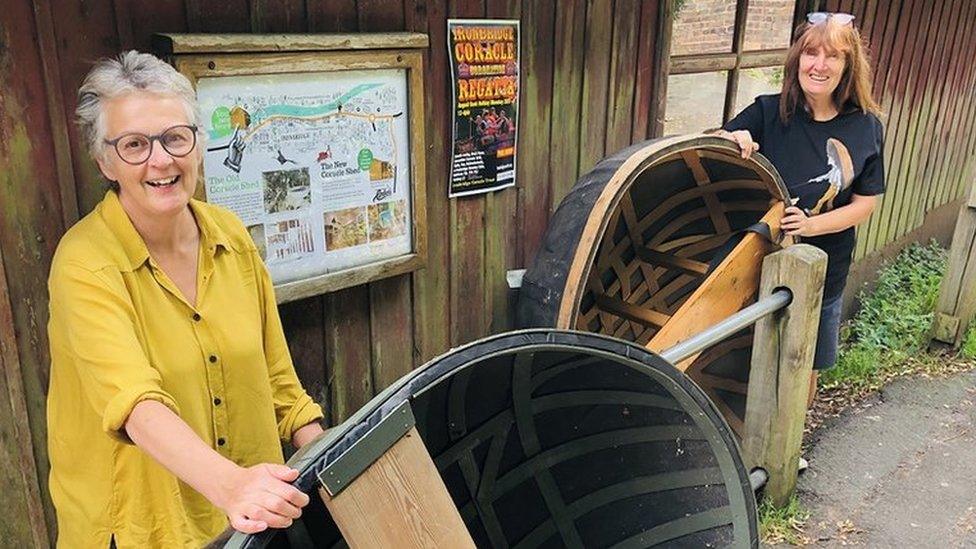Pollution threatens Wales' coracle fishing tradition
- Published
- comments
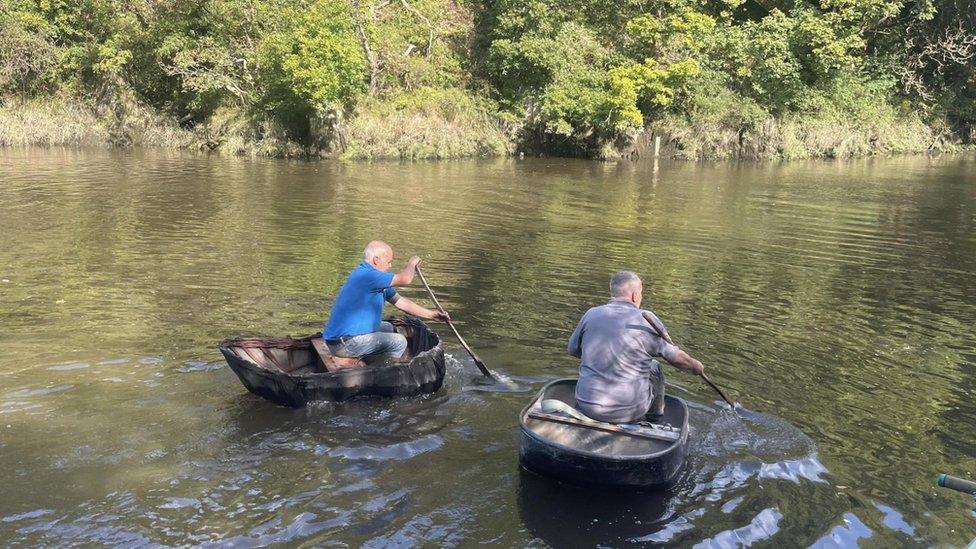
Coracle fishers in west Wales say they now struggle to catch any fish
Coracle fishing is at risk due to river pollution and climate change, fishers in mid and west Wales have claimed.
Floating on a coracle and using nets to feel the bottom of the river by hand to catch fish on the Teifi and the river Tywi is a centuries old tradition.
But fisher Andrew Davies said he finds everything there from raw sewage and sanitary towels to toilet rolls.
The Welsh government said it had made "significant funding" available to improve river water quality.
Coracle fishing takes place in darkness, typically early in the morning so that fish cannot see the nets.
There are reports that the bottom of the river Teifi is covered in a brown slime.
Algae is a result of increasing phosphate levels in the river.
"Basically, it covers the whole bottom of the river, and it just multiplies," said Mr Davies, chairman of the Carmarthen Coracler and Netsmen's Society, who has been fishing on the Tywi for 34 years.
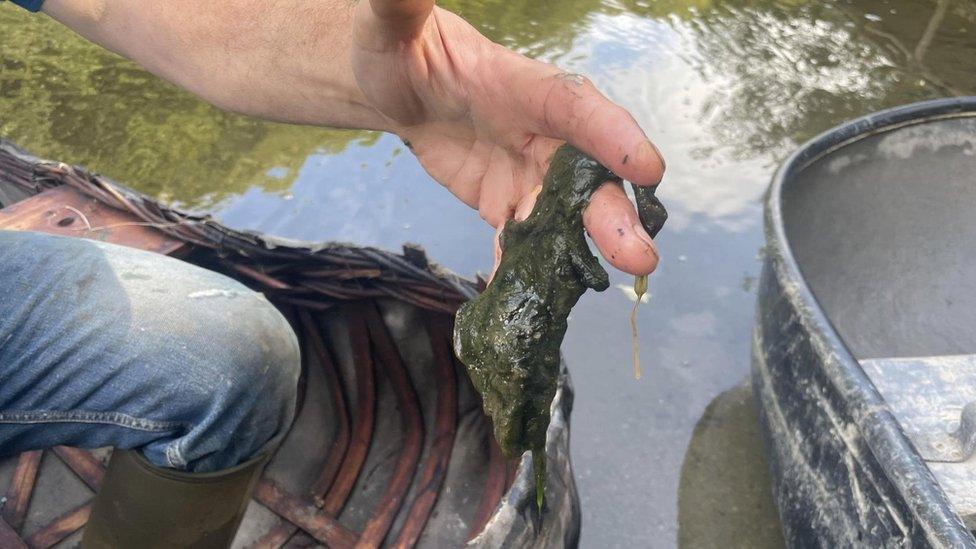
Green algae on the riverbed starves the water of all oxygen, fishers say
"Within a week all the stones are covered with these green algae.
"And because there's no flow in the rivers it just stays there and takes all the oxygen out of the water."
In 2020 Natural Resources Wales (NRW) announced a set of by-laws to protect fish such as salmon and sea trout, meaning that any salmon caught by rod and net fisheries must be released.
Net fishing licences have also increased in price over the years and the fishing term has been reduced to three months, from May to July.
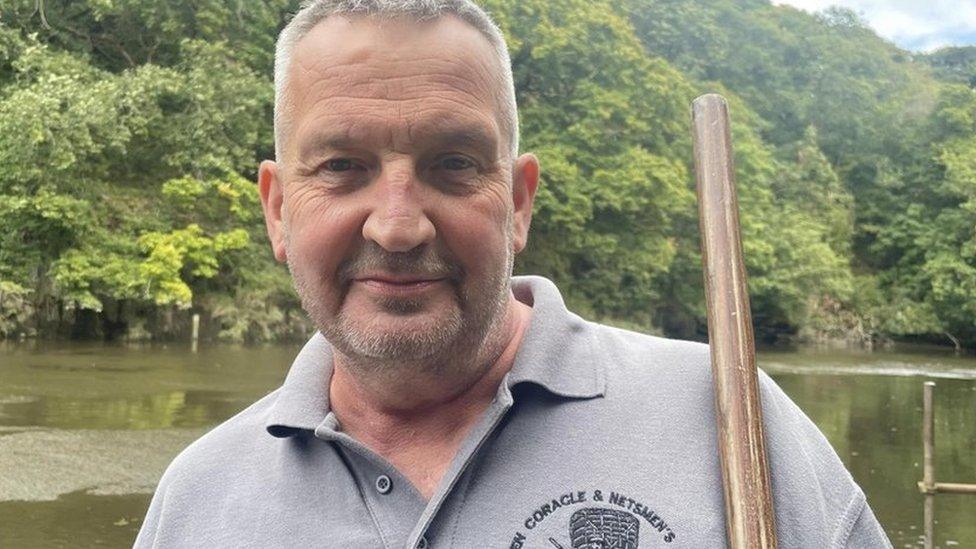
Andrew Davies has often seen foam and a smell of detergent when he's out on the river in the early mornings
This year 10 net coracle licenses are being used on the Teifi, and five coracle licenses on the Tywi.
Mr Davies believed coracle fishers were being unfairly targeted, such as having to release any salmon caught to protect fish stocks.
He said: "I've been fishing at two or three o'clock in the morning and there's foam all the way across the river and it smells of detergent.
"If something isn't done in the next five or 10 years, I can't see the rivers coming back."
Campaign group Save the Teifi is calling on the Welsh government to increase funding for NRW to better monitor rivers for pollution.
Moira Williams from Llandysul, Ceredigion, has launched a petition which so far has nearly 1,000 signatures.
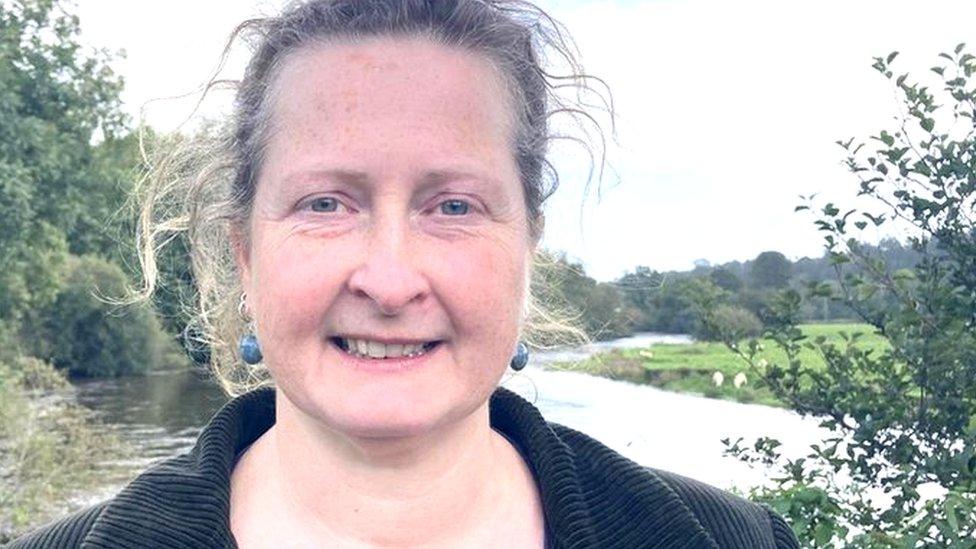
Moira Williams of Save the Teifi says river pollution is not being treated as a priority
"Monitoring, to be fair, is hit and miss," she said. "NRW simply don't have enough boots on the ground, they don't have enough people and enough funding to cover all the areas.
"Sadly, river pollution has been shunted down the list of priorities."
NRW operations manager Ann Weedy said: "We share the wider public concern over the state of our rivers and are actively working with key stakeholders on addressing the causes of poor water quality, as well tackling other challenges including climate change and invasive species which can all impact on fish populations.
"We are already working in partnership through nutrient management boards to address phosphate pollution and work to achieve the conservation objectives of our rivers for the long term.
"Our local teams deliver a 24/7 service and investigate approximately 100 environmental incidents reported to us every year in the Teifi catchment ranging from slurry spills, damage to special habitats and unpermitted sewage discharges."
The Welsh government said: "We fully support communities in the Teifi catchment and across Wales in their demands to stop pollution in Wales' rivers.
"We have made significant funding available to improve river water quality in Wales.
"It's vital we all work together - government, regulators, developers, farmers, water companies and communities - to reduce the pollution in our rivers.
"It is only by working collaboratively that we can tackle the risks and threats our rivers face."

BINGE-WORTHY BOX SETS: Everyone is talking about these award-winning dramas...
WYNNE'S WELSH 70S: Nostalgia and footage from Wynne Evans' favourite decade

Related topics
- Published26 March 2023
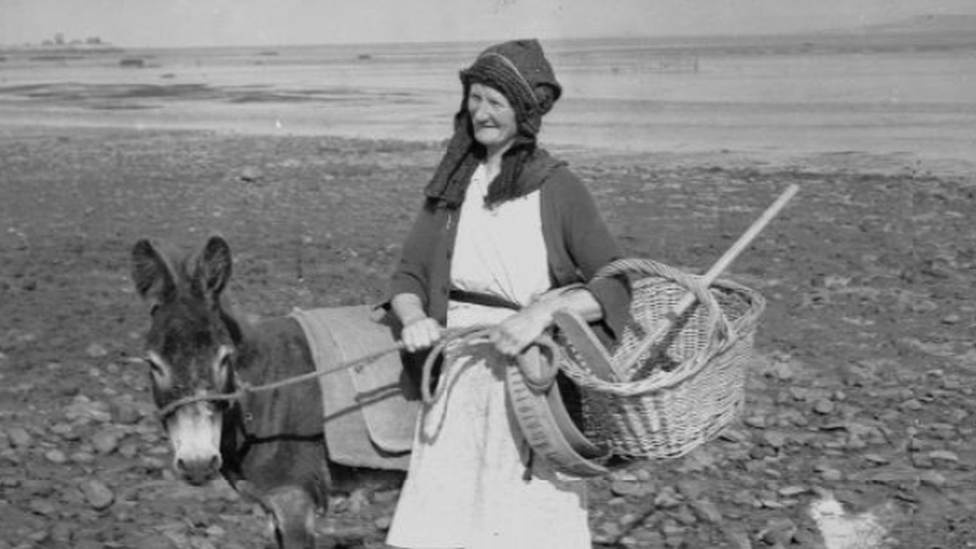
- Published23 August 2023
